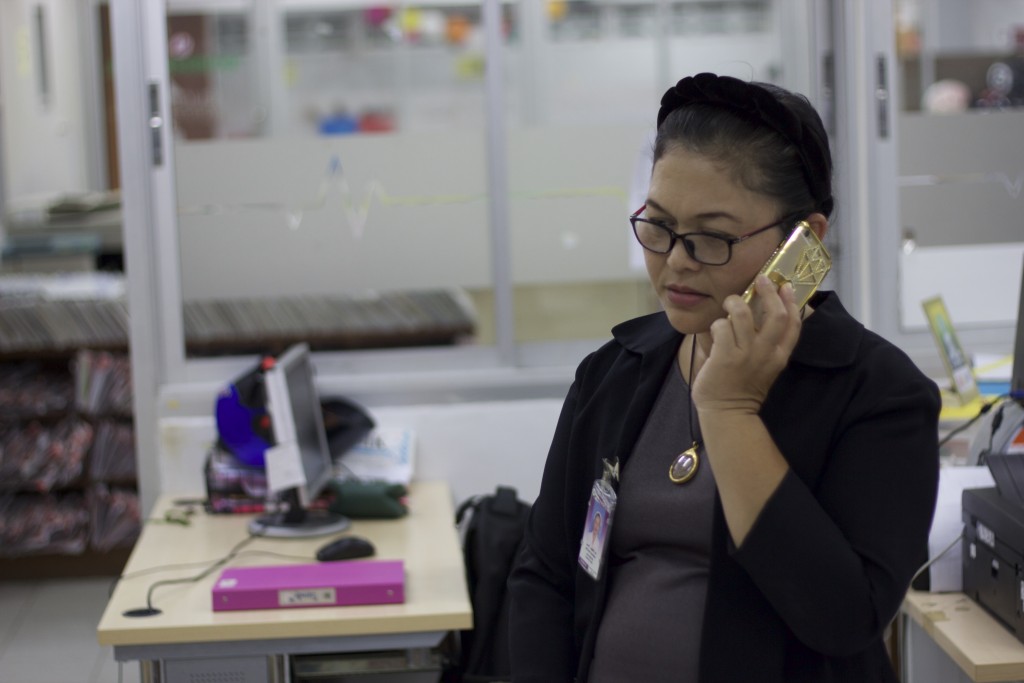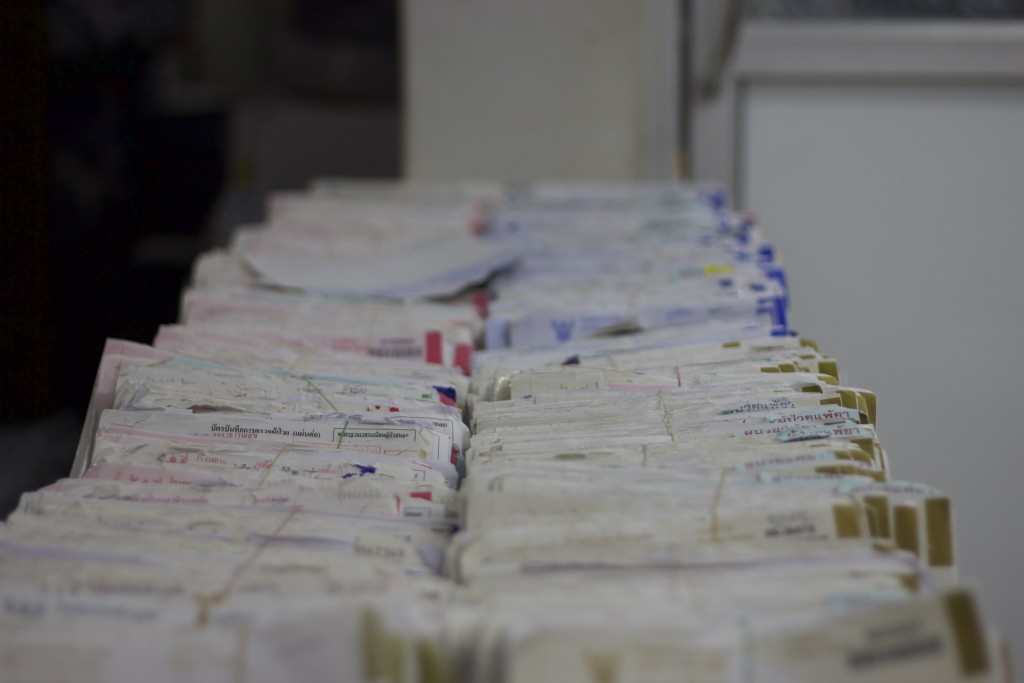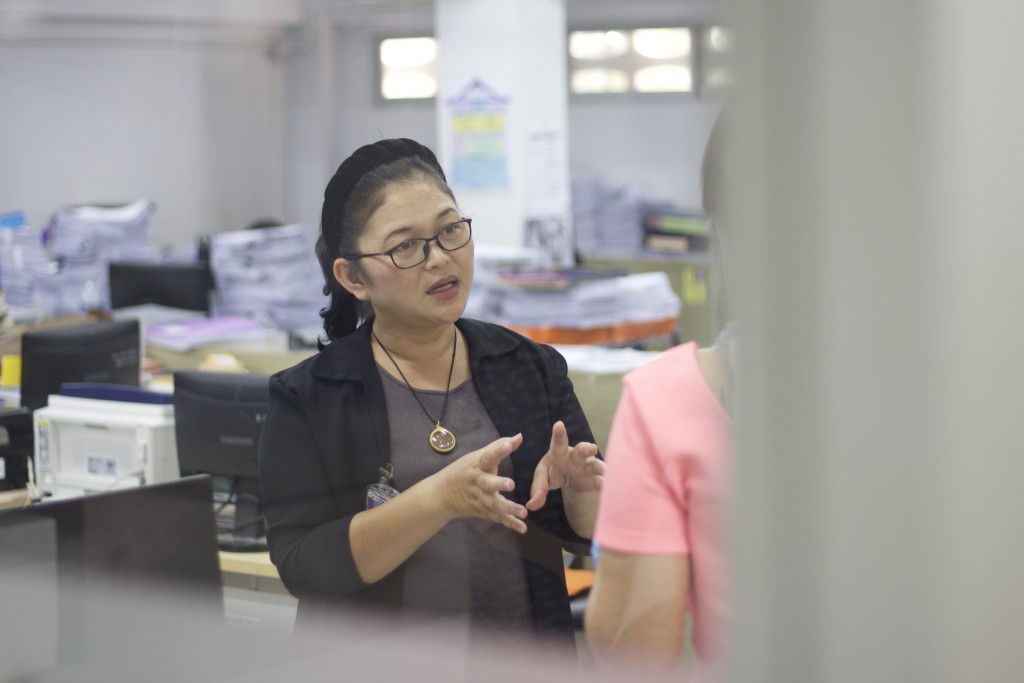
Three public hospitals reports of million baht expenses from unpaid hospital bills by foreigners.
ScandAsia have gotten insight in Vachira Hospital in Phuket’s outstanding balance on unpaid bills by foreigners and it counts almost 20 million baht negative in recent 8 years. Scandinavians forms 20 percent of this loss. Banglamoong Hospital in Pattaya and Patong Hospital in Phuket claims they have the same problem.
“Our priority is always to help, we support the basic health”, Methanee Mareni tells. She’s a nurse and head of the international department at Vachira Hospital in Phuket. Her phone is ringing constantly. When ScandAsia meets her, she’s on the phone with relatives to a Swedish patient.
Vachira Hospital treat thousands of foreigners each year but it has become a costly affair. The Hospital is obligated to accommodate and treat foreigners, who can’t afford private hospitals. Often there’s a good reason why private hospitals are irrelevant for this groups – the insurance is not adequate or they don’t have an insurance at all.
Methanee Marenia and Vachira Hospital are paying the consequences for this. Since they began to account for the losses in 2008, they have a total outstanding balance on 19.827.858 baht concerning a total of 189 foreign patients. In 2015 the loss counted 3.837.583 baht.
Dr. Bancha Kakong, Director of the Phuket Provincial Health Office, assess that the expenses are approximately 10 million baht a year for the Public Hospitals in Phuket. He also claims that Patong Hospital has an outstanding on around 2-3 million baht each year. At The Banglamoong Hospital in Pattaya they had a loss of 1.918.790 baht in 2015 from unpaid bills by foreigners. They can’t provide numbers further back than 2015.
Scandinavians plays a notable part
Germans and Brits tops Vachira Hospitals list over outstanding balance since 2008 but Swedes are placed fourth with a liability for losses of 1.914.368 baht. Finns are eight with unpaid bills for 733.551 baht. Norwegians and Danes are listed 11th and 17th with respectively losses on 674.760 baht and 489.182 baht.
In total Scandinavians are guilt in a loss of 3.811.862 baht at the Vachira Hospital. In 2015 it was 742.722 baht, merged with Banglamoong Hospital numbers from 2015 it’s a total loss of 787.454 baht in 2015 caused by Scandinavians unpaid bills.
Tourists, young as old, and retirees living in Thailand are the usual suspects. People working in Thailand usually have a work insurance, so they very rarely loads the hospital, Methanee Mareni explains.
Problems occurs when the patient doesn’t have a travel or private insurance. At other times the patient has an insurance, but the insurance doesn’t cover, very often when it’s accidents occurred by drinking, which are very common among foreigners.
“We are aware of the problem”, Pär Kågeby, Senior Consular Office at the Embassy of Sweden in Bangkok, informs, adding that they are doing a lot to prevent this: “We try to inform people in Sweden with continuing campaigns to make sure that Swedes knows the importance to sign a proper insurance before going to Thailand”.
Patric Nilsson, Deputy Director at the Swedish Ministry of Foreign Affairs, is on the P4 Radio in Sweden every Thursday and has been in Morning TV several times informing Swedes of the importance of an insurance when traveling.
Mikael Hemniti Winther, Danish Ambassador in Bangkok, tells the same. They acknowledge the problem and they’re doing their best to inform about insurances. In the end no one can force people to buy an insurance.
Swedish, Danish and Finnish national health insurance doesn’t cover in Thailand. Norwegian health insurance covers Norwegian expats, who have been living in Norway in 3 of their last 5 years.

Battling to get money back
When treatment is over and the bill is unpaid Vachira Hospital uses a lot of ressources to raise the money afterwards, but it’s often a dead end.
“After the operations, we try to get the money, but it’s hard. We’ll try to get in touch with the families, embassies, governments and even though people are trying to be helpful, if they don’t pay they don’t pay and we can’t do anything about it”, Methanee Mareni tells.
“We can’t do anything to assist the hospital. It’s a matter between the hospital and the patient, who happens to be a Danish citizen. We don’t have the authority to interfere”, Mikael Hemniti Winther says.
Scandinavian institutions have the same base or lack of that. “We can sit down and discuss with relatives to a Swedish citizen in a Thai hospital what there financial possibility is to pay their own costs. But if the hospital and the patient doesn’t make a deal, we can do nothing to collect the debt”, Patric Nilsson from the Swedish Ministry of Foreign Affairs tells.
In Sweden they have a so-called summary process which means that, if the hospital signs a contract with the Swedish patient they can collect the debt due to Swedish legislation, but that is also a matter between the hospital and the patient to sign such a contract.
Unclear solutions
Dr. Bancha Kakong has proposed that foreigners should sign a mandatory insurance when they arrive in Thailand. In the Phuket News 6. January 2016 he said:
“Thailand, and especially health officials in Phuket, are currently pushing to introduce compulsory travel insurance by law. Very soon, all tourists who want to enter Thailand must have travel insurance”, Dr. Bancha Kakong still suggest this, when ScandAsia spoke to him.
Another likely proposal is being raised by Phuket Governor, Chamreon Tipayapongthad. He suggest to collect a landing fee for tourists so they have a minimum insurance when they enter Thailand. Chamreon Tipayapongthad has presented his view on the topic of travel insurance for the Ministry of Foreign Affairs and the Ministry of Tourism and Sports.
Patric Nilsson comments on the proposal: “Whether they implant this or not it’s a matter of Thai politics. All I can say is, that it’s unfair to the hospitals and we are grateful for the work they do. I recommend that the hospital tries to make an arrangement on an installment plan to pay the bill over time if the patients can’t pay right away”.
At the Ministry of Tourism and Sports they don’t want to comment on these proposals. They state that they earmark around 200 million baht a year in a tourist fund to cover such losses at the hospitals and “help and support the tourists”.
Methanee Mareni is familiar with the fund, but it hasn’t had notable impact on their expenses:
“We wrote a letter to the Ministry of Tourism and Sports 7 years ago for the first time, applying for money to cover expenses. Only one time have we received money from the fund”, she says. It was concerning the case when an Italian tourist was robbed and stabbed in Karon in 2014. In that case Vachira Hospital received 100.000 baht.

